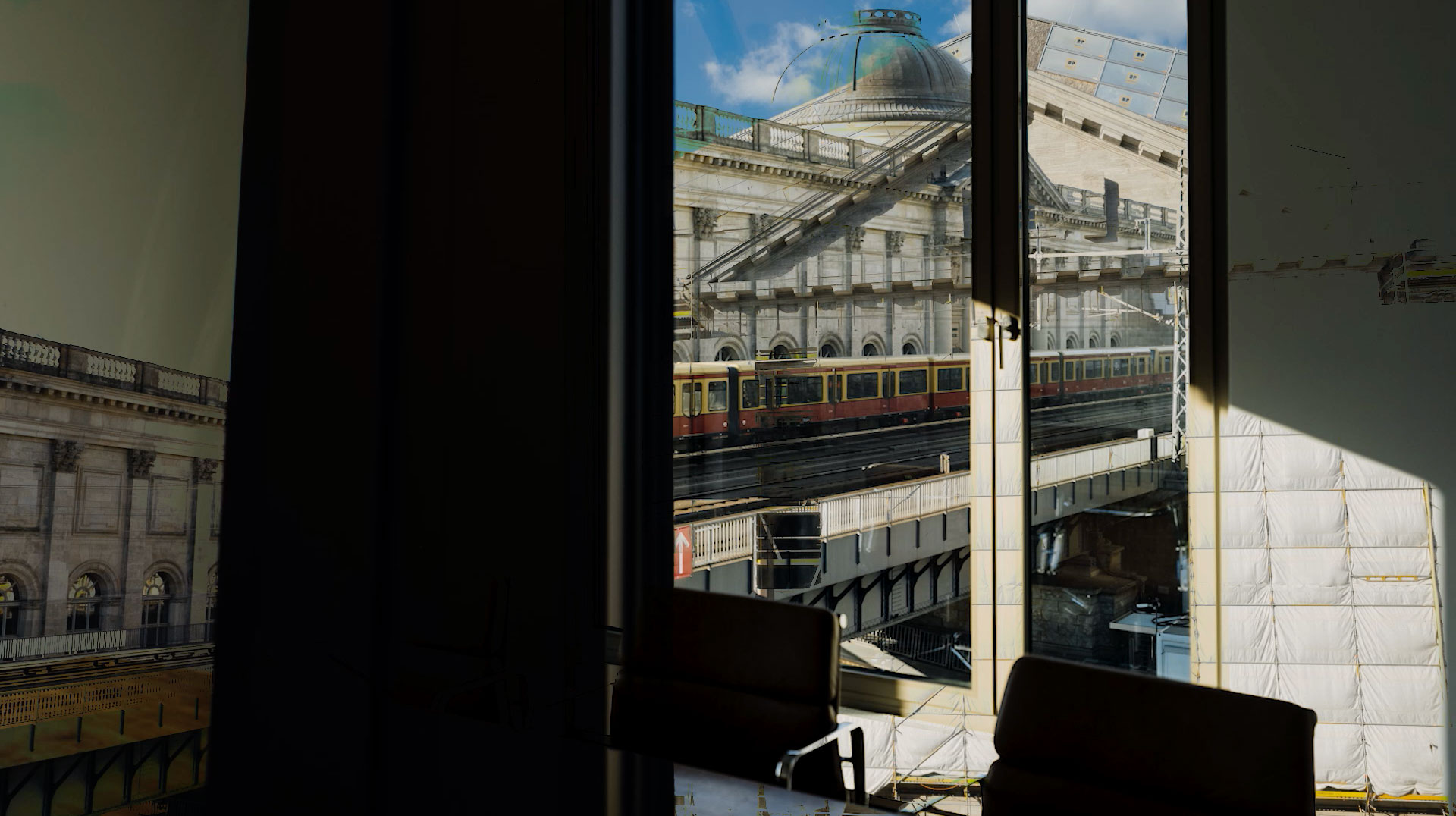The restitution of Nazi-looted art plays a central role in art law. This is because art must be seen in its historical context, which is closely linked to origin and culture. Art is a central part of the culture of remembrance.
In Germany, the Advisory Commission has so far dealt with restitution cases, such as the well-known Welfenschatz case. German restitution/art law is now being reformed with the introduction of an arbitration tribunal.
Regulations on the restitution of Nazi-looted art in art law
The restoration of lawful ownership, including with regard to Nazi-looted art, is an important part of restitution/art law.
The term Nazi-looted art in art law includes, among other things, the theft of artworks and art collections by the Nazi tyranny, which took place due to racist, political and ideological persecution. Nazi-looted art in art law also includes works of art that Jews had to sell or were unable to take with them when they fled, even before the war.
The restitution of Nazi-looted art takes place legally, in restitution/art law, through examination and, if necessary, through appropriate compensation or through the return of objects that are still in public art collections, museums and art exhibitions to their rightful owner.
In Germany, the assertion of a restitution claim on the basis of a special restitution law has not (or no longer) been possible since 1993, with restitution on the basis of the general civil law claim for restitution in accordance with §985 of the German Civil Code (BGB) only being available in special exceptional cases. A restitution law does not exist.
However, the Washington Principles and the Advisory Commission, which is to be replaced by a court of arbitration, are available in restitution/art law for the examination and assertion of restitution claims.
Washington Principles for „fair and just“ solutions
The Washington Principles were signed by 42 states, including the Federal Republic of Germany, at the Washington Conference on Holocaust-Era Assets in 1998.
They form the core component of the legal reappraisal of historical responsibility in restitution/art law. In the eleven guiding principles, the states undertake, among other things, to find „fair and just solutions“, for example in art law, for cultural property and objects that have not been restituted (see Article 8 of the Washington Principles).
The Washington Principles are non-binding international law guidelines (soft law) in restitution/art law. They do not, for example, establish individual legal claims on the part of those affected. The participating states are free to decide whether and how to incorporate them into their legal systems.
In the Federal Republic of Germany, implementation took place in 1999 with the Joint Declaration „on the tracing and restitution of cultural property seized as a result of Nazi persecution, in particular Jewish property“ as a soft law instrument. In addition, the legally non-binding Guideline for public institutions was created, which represents a practical guideline for the restitution and identification of Nazi-looted art.
The Advisory Commission was established on the basis of Articles 10 and 11 of the Washington Principles in connection with the restitution of cultural property seized as a result of Nazi persecution.
The work of the Advisory Commission
The Advisory Commission was set up to mediate in restitution issues relating to publicly-owned collections on the basis of the Washington Principles, the Joint Declaration and the Guideline.
It was assigned the task of making legally non-binding recommendations on restitution/art law based on „moral and ethical“ grounds (page 57 of the Guideline). Legally non-binding recommendations do not require mandatory implementation.
The Advisory Commission's action was preceded by the referral of restitution/art law cases by both parties to the dispute. Since its establishment as an institute in art law, it has made actual recommendations in more than twenty disputes in order to arrive at „just and fair solutions“ for restitution claims.
The work of the Advisory Commission has been repeatedly criticised over the years, which is why it was decided to replace it with a court of arbitration in 2025.
The Commission's touchstone: the Welfenschatz case
In the well-known Welfenschatz case in restitution/art law, the Advisory Commission was called upon for the first time in 2008. It had to decide whether the Welfenschatz was a forced sale due to Nazi persecution and therefore Nazi-looted property.
In 2025, the Advisory Commission will deal with the Welfenschatz once again.
The Welfenschatz is a collection of artefacts considered to be one of the most important German church treasures of the Middle Ages. One party estimates its value at several hundred million US dollars.
The Welfenschatz was referred to the Advisory Commission because it was sold or had to be sold by Jewish art dealers to the Prussian state in 1935 for several million Reichsmark. The Prussian Cultural Heritage Foundation (Stiftung Preußischer Kulturbesitz; SPK) has forty-two of the medieval artefacts in its possession.
In 2008, the descendants asserted restitution claims regarding the Welfenschatz and demanded that the Welfenschatz be restituted in accordance with the Washington Principles within the framework of restitution law.
The Advisory Commission at the time dealt with these claims and came to the recommendation in 2008 that no restitution had to take place under restitution/art law, as it was not a case of a forced sale due to Nazi persecution. Restitution did not take place.
It was argued that there were no documents or evidence „indicating that the art dealers and their business partners in the [...] specific case were pressurised in the negotiations - for example by [Hermann] Göring.“
In spring 2024, the Advisory Commission initiated a new consultation on restitution/art law as new documents emerged.
The heirs are confident that the nature of the forced sale will be recognised as such in the new referral and that an „appropriate referral“ will be possible. „Jews had practically no room for manoeuvre in Germany in 1935. Newly emerged evidence further reinforces this realisation". Said the representative of some of the art dealers' heirs.
As there was still a temporary lack of mutual consent, which is necessary for the Advisory Commission to deal with the case, it had not yet dealt with the case again. The SPK has now given its consent.
As Minister of State for Culture, Claudia Roth welcomed this decision. „From the history of persecution, especially of Jewish people in and by National Socialist Germany, we still have a special responsibility today to promote the restitution of cultural property that was confiscated as a result of Nazi persecution. Germany has committed itself to this through the Washington Principles. We are also honouring this commitment with today's decision.“
Reform in art law: the „Arbitration Tribunal for Nazi-looted art“
The repeated examination of the Welfenschatz case underlines some of the weaknesses of previous restitution practice with regard to fair and equitable solutions for both parties.
In March 2025, the dissolution of the Advisory Commission and the assumption of its tasks by an arbitration tribunal was announced. The introduction of the arbitration tribunal is accompanied by changes that, among other things, attempt to address existing criticisms of the Advisory Commission.
On the one hand, the claimant of a claim in restitution/art law is to have a unilateral right of appeal. Mutual consent, which at least led to a delay in the Welfenschatz case, for example, is no longer required.
However, the defendants, i.e. the federal government, federal states and local authorities, must make a standing offer. Only then can each claimant enter into arbitration proceedings with them.
On the other hand, in contrast to the non-binding recommendations of the Advisory Commission in restitution/art law, the decisions of the arbitration tribunal should be binding. Only in the event of gross errors can the proceedings be taken over by the ordinary courts in art law and go through the appeal process.
This would also rule out the possibility of going to foreign courts in matters of restitution/art law. In cases such as the Welfenschatz, in which US courts have been involved in the meantime, foreign courts could in principle no longer be involved.
A further innovation is that the guidelines are now binding for arbitration tribunals in their decision-making. Meanwhile, the Advisory Commission was free to refer to it and go beyond the given standards in its recommendations.
With a view to the new referral of the Welfenschatz case, Roth, as Minister of State for Culture, is „certain that the arbitration agreed jointly with the federal states, the municipal umbrella organisations, the Jewish Claims Conference and the Central Council of Jews in Germany will make further progress possible here.“ The Central Council of Jews also welcomes the initiative.
On the other hand, an open letter signed by lawyers, historians and descendants of victims of National Socialist persecution criticised Olaf Scholz as Federal Chancellor as early as January 2024. Among other things, the lack of involvement of experts and interest groups was criticised.
Restitution law expert Zacharias Mawick hopes that „the difficult birth of the arbitration tribunal is not a harbinger of a controversial decision-making practice that, although it stands on a different footing, could be just as unsatisfactory for all parties involved as the Advisory Commission was previously.“
It remains to be seen how the Arbitration Tribunal will answer questions of restitution/art law in future in cases such as the Welfenschatz.
Résumé
The dissolution of the Advisory Commission, which has been replaced by an arbitration tribunal, represents a significant change in restitution/art law and in German restitution practice. In particular, the unilateral right of appeal and the legally binding nature of the decisions have responded to problems that have made restitution more difficult for claimants in cases such as the Welfenschatz.
„Examining the restitution of Nazi-looted art remains a central issue, not only in art law, but also in the culture of remembrance in the Federal Republic of Germany. It is still uncertain how the new arbitration tribunal will deal with restitution issues in practice.“ Says dtb-lawyer and expert in art law and restitution Leon van Lee. „It is important that fair and just solutions are found in accordance with the Washington Principles."
Status 01.05.2025

